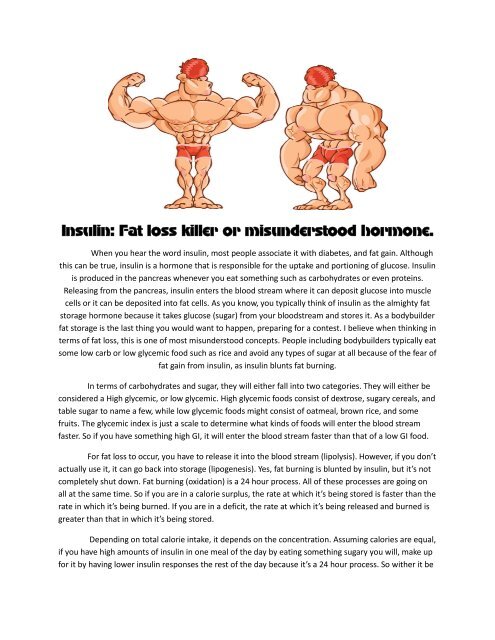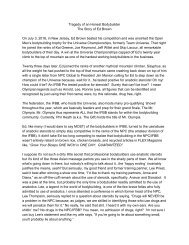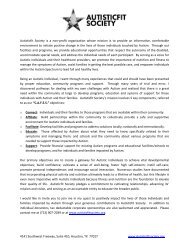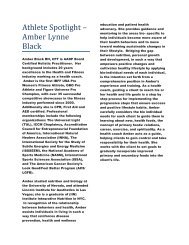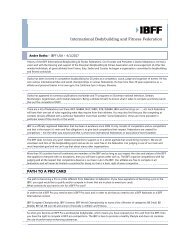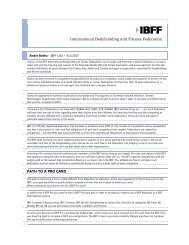Biomass Muscle
A magazine for the bodybuilding masses.
A magazine for the bodybuilding masses.
Create successful ePaper yourself
Turn your PDF publications into a flip-book with our unique Google optimized e-Paper software.
Insulin: Fat loss killer or misunderstood hormone.<br />
When you hear the word insulin, most people associate it with diabetes, and fat gain. Although<br />
this can be true, insulin is a hormone that is responsible for the uptake and portioning of glucose. Insulin<br />
is produced in the pancreas whenever you eat something such as carbohydrates or even proteins.<br />
Releasing from the pancreas, insulin enters the blood stream where it can deposit glucose into muscle<br />
cells or it can be deposited into fat cells. As you know, you typically think of insulin as the almighty fat<br />
storage hormone because it takes glucose (sugar) from your bloodstream and stores it. As a bodybuilder<br />
fat storage is the last thing you would want to happen, preparing for a contest. I believe when thinking in<br />
terms of fat loss, this is one of most misunderstood concepts. People including bodybuilders typically eat<br />
some low carb or low glycemic food such as rice and avoid any types of sugar at all because of the fear of<br />
fat gain from insulin, as insulin blunts fat burning.<br />
In terms of carbohydrates and sugar, they will either fall into two categories. They will either be<br />
considered a High glycemic, or low glycemic. High glycemic foods consist of dextrose, sugary cereals, and<br />
table sugar to name a few, while low glycemic foods might consist of oatmeal, brown rice, and some<br />
fruits. The glycemic index is just a scale to determine what kinds of foods will enter the blood stream<br />
faster. So if you have something high GI, it will enter the blood stream faster than that of a low GI food.<br />
For fat loss to occur, you have to release it into the blood stream (lipolysis). However, if you don’t<br />
actually use it, it can go back into storage (lipogenesis). Yes, fat burning is blunted by insulin, but it’s not<br />
completely shut down. Fat burning (oxidation) is a 24 hour process. All of these processes are going on<br />
all at the same time. So if you are in a calorie surplus, the rate at which it’s being stored is faster than the<br />
rate in which it’s being burned. If you are in a deficit, the rate at which it’s being released and burned is<br />
greater than that in which it’s being stored.<br />
Depending on total calorie intake, it depends on the concentration. Assuming calories are equal,<br />
if you have high amounts of insulin in one meal of the day by eating something sugary you will, make up<br />
for it by having lower insulin responses the rest of the day because it’s a 24 hour process. So wither it be


